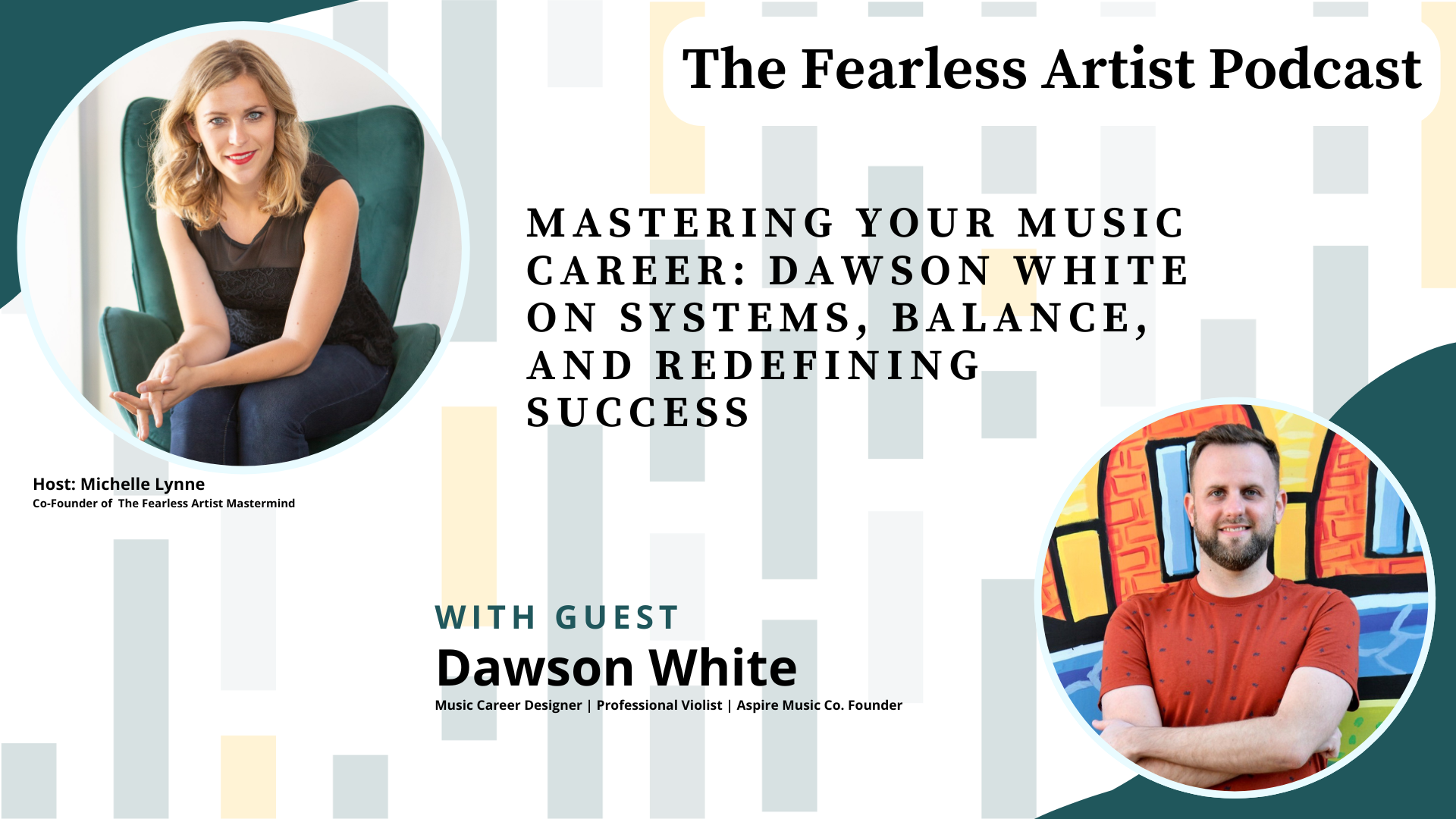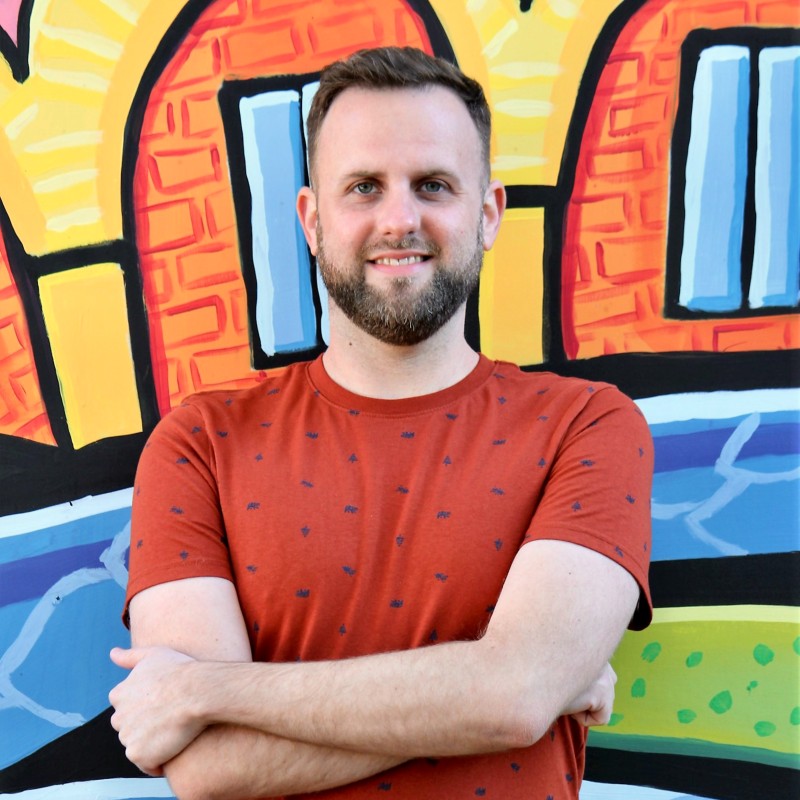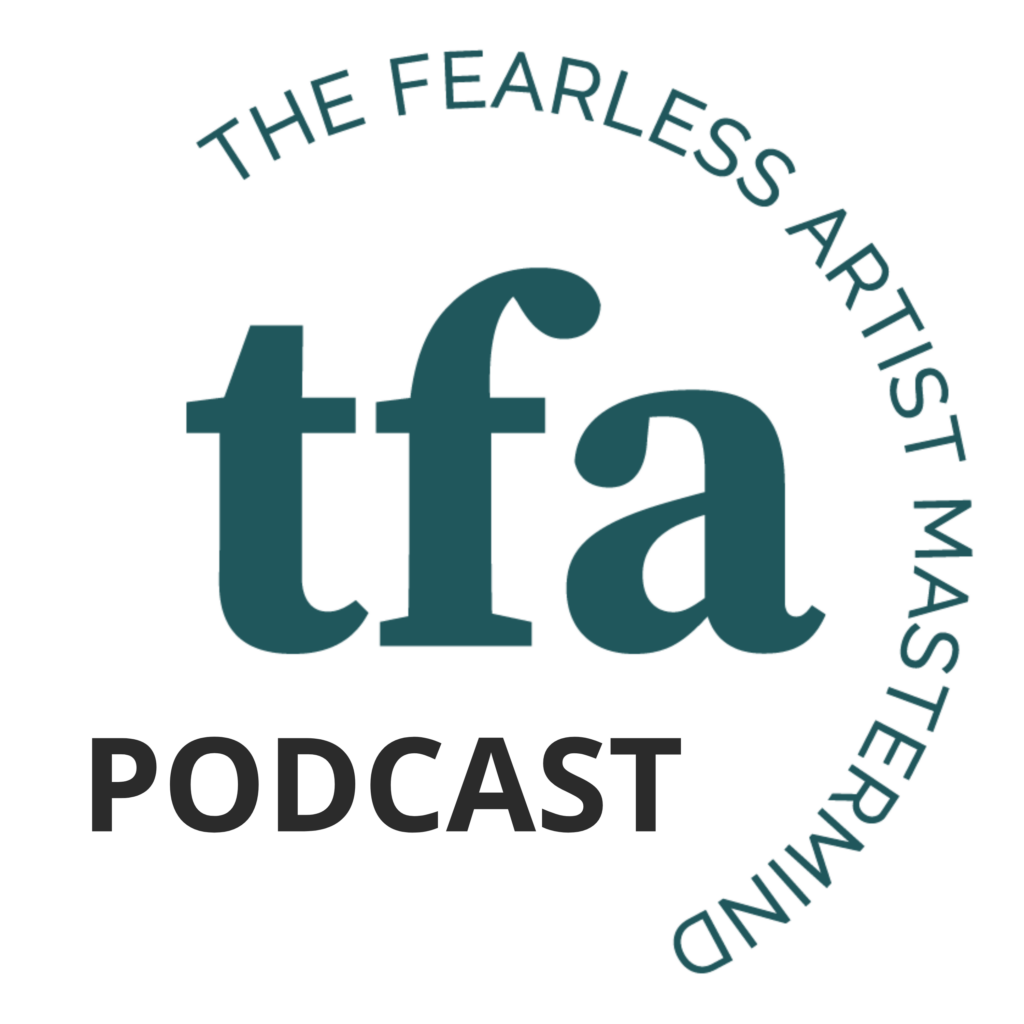Mastering Your Music Career: Dawson White on Systems, Balance, and Redefining Success
Episode 18

Guest:
Dawson White
Music Career Designer | Professional Violist | Aspire Music Co. Founder
Artist-teacher with extensive experience teaching viola and chamber music at undergraduate/ graduate level with students at Oberlin Conservatory, Royal Conservatoire of the Hague, and University of Michigan. Violist in the Houston Grand Opera & Ballet orchestras and Cabrillo Festival Orchestra. Strong background in chamber music with two university string quartet residencies. Additional expertise in program building, entrepreneurship, and arts organization development.
—
Website –
Instagram –
https://www.instagram.com/MusicAspires
—

Subscribe to The Fearless Artist Podcast
Intro/Outro music by Michelle Lynne • Episode produced by phMediaStudio, LLC
